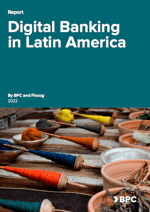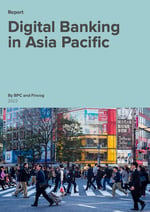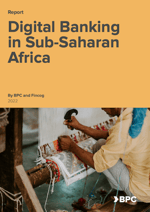Developments in payment processing – specifically SaaS payments – are the subject of the latest in our series of blogs on the BPC annual client conference.
It is widely accepted that innovation is one of the most (if not the most) important elements in keeping pace with the ever-changing world of payment processing.
Discussing the next major trend in SaaS payments during a panel discussion were Emmanuel Agha (founder and CEO of digital payment platform Innovectives), Rik De Deyn - senior director of financial services in the global industry strategy group at Oracle, Gerhard Oosthuizen, chief technology officer at Entersekt, Vasily Grigoriev, EVP – managing director payment SaaS, Radar Payments by BPC, moderated by Chetan Parekh, partner at Cedar Management Consulting International.
Parekh started by outlining the challenges faced by banks and payment service providers. He suggests the three challenges banks face today are investing into new technology, complying with regulations, and driving the customer experience. On the other hand, the success of payments as a service is based on regulations, driving adoptions with fintechs, neobanks and retail banks.
Oosthuizen says increased regulation could be hindering banks, with unlocking APIs being the key to this. He observes that many banks are still using old technologies, hindering the customer experience. “It is all about increasing the chances of a digital payment being successful,” he says.
According to De Deyn, payment services are part of a bank’s mission-critical processing environment. An important component of the shift in payment services is the movement to the cloud, but some financial institutions continue to harbour concerns about risk and performance.
Banks are at a tipping point about using cloud to modernise mission critical workloads, with many citing improved compliance and security as drivers for the move to the cloud. During the pandemic many have felt the need to speed up digitization of their services and the move to the cloud reduces the regulatory burden.
De Deyn describes the cloud as a natural fit for banks. Payment processes are relatively standardised - which reduces friction - and this standardisation creates more room for innovation, such as the introduction of wallets, faster payments, buy-now pay-later schemes, payment fintechs and digital currencies.
Next to speak was Agha, who discussed the use of innovation and what it means for small businesses. He began by addressing the funding gap, which he refers to as a huge opportunity that is not being addressed, and notes that increased innovation in lending systems allows SMEs access to loan origination, repayment and rewards, as well as customer reward systems and transaction reporting.
Embedded value-added services such as agency banking have been added to enable SMEs to do agency banking and earn more income, developing financial services that are of benefit to their communities.
Agha observes that the pace of innovation is such that any organisation trying to deploy its own back end infrastructure would be playing catch up all the time. To address this, payment specialists such as BPC are engaged to manage these systems.
He went on to explain that Innovectives has effectively created a new market – SME banking – and that by moving its core infrastructure into the cloud it has a system that is faster and more elastic. This is where payment as a service running on a cloud infrastructure has opened up a new vista of opportunity for financial institutions that want to play in that space.
Agha says Innovectives has set itself a target of reaching one million merchants in the next 24 months, which he believes to be possible. One of the problems encountered by this model is that the needs of SMEs are not understood by banks. They do not provide SME banking, so there is a knowledge gap that exists in the traditional bank.
Agha is keen to stress that he doesn’t want to ‘reinvent the wheel’ and acknowledges that the market will change over time. He concludes by observing that a number of telcos in this market are getting their banking licence so they don’t have to spend the next couple of years trying to understand the SME space.
Grigoriev was then asked for his views on what the previous participants had said and began by observing that BPC’s SmartVista solution is compatible with Oracle Cloud Infrastructure (OCI), which helps businesses scale and resolve some of the key issues around data regulation requirements.
From his perspective, cloud-based services are much more efficient and have enabled BPC to safely migrate all its projects from on-premise infrastructure to OCI as well as onboarding customers in an OCI environment.
According to Grigoriev, the new proposition is all about trust. BPC has developed a strong track record over the last three decades with in excess of 350 successful customer implementations across more than 100 countries, which means the company not only has extensive experience but has also gained the trust of customers in the critical area of payment processing.
Time to market matters to these customers - which is why BPC releases a new version of SmartVista every four weeks, incorporating new services and features – and he refers to understanding fintechs as another increasingly important issue BPC is working on.
The participants concluded by emphasising the importance of understanding final costs and working with the right partner to address mission critical factors.




